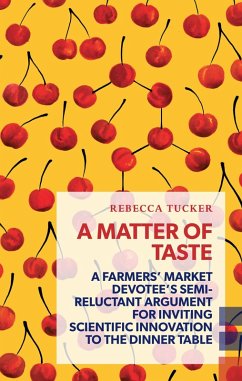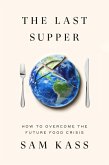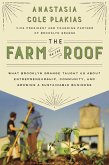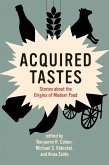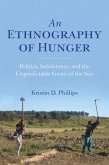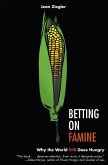How farmer's markets and organic produce became synonymous with "good food" and why they shouldn't be.
How did farmer's markets, nose-to-tail, locavorism, organic eating, CSAs, whole foods, and Whole Foods become synonymous with "good food"? And are these practices really producing food that is morally, environmentally, or economically sustainable? Rebecca Tucker's compelling, reported argument shows that we must work to undo the moral coding that we use to interpret how we come by what we put on our plates. She investigates not only the danger of the accepted rhetoric, but the innovative work happening on farms and university campuses to create a future where nutritious food is climate-change resilient, hardy enough to grow season after season, and, most importantly, available to all-not just those willing or able to fork over the small fortune required for a perfect heirloom tomato.
Tucker argues that arriving at that future will require a broad cognitive shift away from the idea that farmer's markets, community gardens, and organic food production is the only sustainable way forward; more than that, it will require the commitment of research firms, governments, corporations, and post-secondary institutions to develop and implement agriscience innovations that do more than improve the bottom line. A Matter of Taste asks us to rethink what good food really is.
How did farmer's markets, nose-to-tail, locavorism, organic eating, CSAs, whole foods, and Whole Foods become synonymous with "good food"? And are these practices really producing food that is morally, environmentally, or economically sustainable? Rebecca Tucker's compelling, reported argument shows that we must work to undo the moral coding that we use to interpret how we come by what we put on our plates. She investigates not only the danger of the accepted rhetoric, but the innovative work happening on farms and university campuses to create a future where nutritious food is climate-change resilient, hardy enough to grow season after season, and, most importantly, available to all-not just those willing or able to fork over the small fortune required for a perfect heirloom tomato.
Tucker argues that arriving at that future will require a broad cognitive shift away from the idea that farmer's markets, community gardens, and organic food production is the only sustainable way forward; more than that, it will require the commitment of research firms, governments, corporations, and post-secondary institutions to develop and implement agriscience innovations that do more than improve the bottom line. A Matter of Taste asks us to rethink what good food really is.
Dieser Download kann aus rechtlichen Gründen nur mit Rechnungsadresse in A, D ausgeliefert werden.

